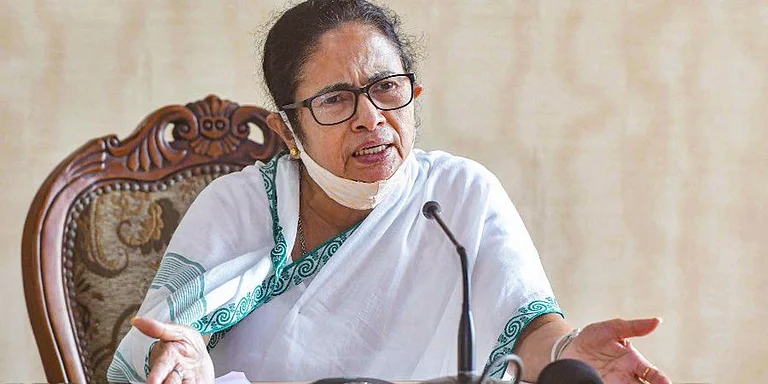The Supreme Court has refused to halt the appointments of new Election Commissioners (ECs) under the 2023 legislation, which omits the Chief Justice of India from the selection committee. The bench, consisting of justices Sanjiv Khanna, Dipankar Datta, and Augustine George Masih, declined to suspend the appointments, stating, "As a general practice, we refrain from issuing interim orders to stay legislation." The court postponed the hearing on petitions contesting the appointments of two ECs until March 21.
Gyanesh Kumar and Sukhbir Sandhu were appointed as ECs on Thursday. Prime Minister Narendra Modi chaired the selection committee that chose them to fill the vacancies in the Election Commission following the retirement of Anup Chandra Pandey and the sudden resignation of Arun Goel. These appointments were made under the 2023 law, which modified the procedure for appointing ECs by excluding the Chief Justice of India from the committee.
The appointment process for Election Commissioners, including the Chief Election Commissioner (CEC), has been a contentious issue for several years. Traditionally, the power to appoint these officials rested solely with the Executive branch, i.e., the Union government, raising concerns about the independence and transparency of the process.
How were EC and CEC appointed before?
The process of appointing the Chief Election Commissioner (CEC) and Election Commissioners (ECs) prior to 2024 was governed by the provisions of Articles 324-329 in Part XV (Elections) of the Indian Constitution. According to Article 324, the "superintendence, direction, and control of elections" were entrusted to the Election Commission, comprising the CEC and other ECs as determined by the President of India.
Although the Constitution didn't delineate a specific legislative procedure for appointments, the President appointed the CEC and ECs based on the advice of the Union Council of Ministers, led by the Prime Minister. These appointments were significant as they vested individuals with extensive powers outlined in the Constitution, augmented by subsequent legislation such as The Representation of the People Act, 1950, and The Representation of the People Act, 1951.
Historically, the Election Commission evolved from a single-member body to a multi-member body. Initially, until 1989, it comprised only the CEC. However, amid tensions between the government and the CEC at the time, the Election Commission expanded to include additional ECs just before the 1989 Lok Sabha elections.
The composition of the Election Commission underwent further changes in 1990 and 1993. During this period, the status of the CEC and ECs was equalized, granting all members equivalent decision-making powers. These adjustments were made through legislative amendments, aiming to ensure unanimity among the commissioners on crucial matters.
Despite legal challenges and political dynamics, the Election Commission has operated as a three-member body since 1993, with the CEC and ECs functioning collectively to fulfill the Commission's mandate of overseeing democratic processes in India.
Petitions for fair appointment of EC
In 2015, 2017, 2021, and 2022, several petitions were filed before the Supreme Court, calling for a fair and transparent system for appointing Election Commissioners. The petitioners argued that the existing process was opaque, raising doubts about the institution's independence. They advocated for a consultative process involving a collegium or a body of persons tasked with the responsibility of selecting the Election Commissioners.
The Supreme Court took up these petitions, and on March 2, 2023, a five-judge Constitution Bench delivered a landmark judgment. The Court delved into the legislative history of Article 324 of the Constitution, which deals with the role of the Election Commission of India. It observed that the founding fathers of the Constitution did not intend for the Executive to have exclusive authority in appointing Election Commission members.
The Court noted that the absence of a law by Parliament, as envisioned in Article 324(2), had left a vacuum, allowing the Executive to wield sole power in appointments. Considering the "devastating effect of continuing to leave appointments in the sole hands of the Executive," the Court deemed it appropriate to lay down a process for the appointment of Election Commissioners
What does the new act say?
The CEC and other ECs shall be appointed from persons who are holding or have held a post equivalent to the rank of Secretary to the Government of India. There shall be a search committee headed by the Minister of Law and Justice, who shall prepare a panel of five persons for consideration by the selection committee. The CEC and EC shall be appointed by the President on the recommendation of this selection committee consisting of the Prime Minister, the Leader of Opposition in the Lok Sabha and a Union Cabinet Minister to be nominated by the Prime Minister.
It was for the first time that the Parliament is proposing a structured mechanism for the identification of suitable persons for the post of CEC and EC. However, this bill removes the CJI from the selection process that was laid down in the Anoop Baranwal case.


























